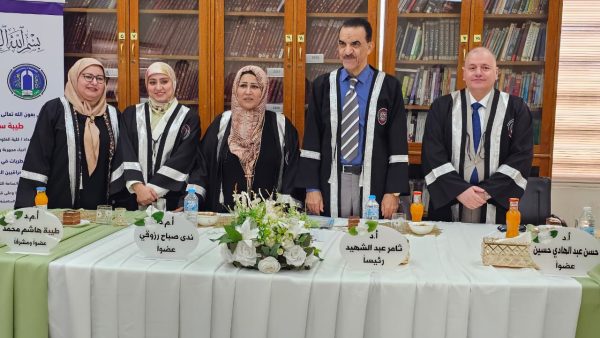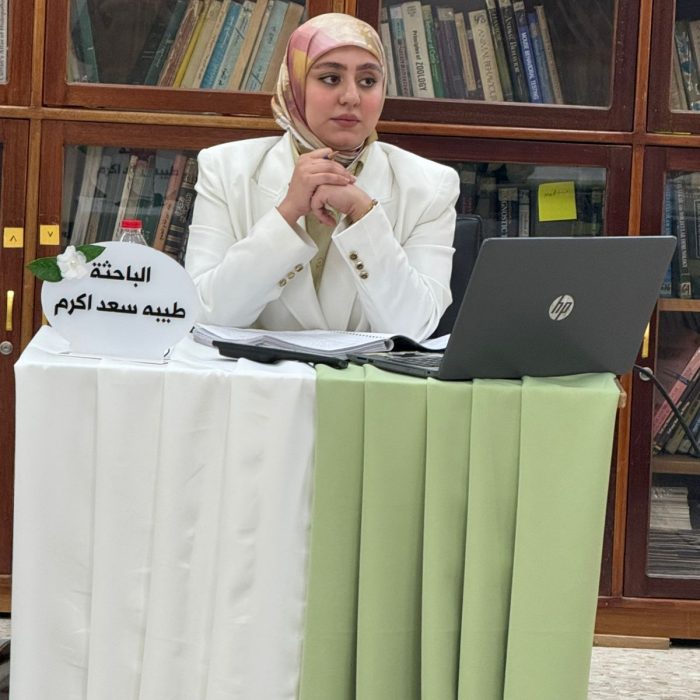Master Discussion
The College of Science for Women at the University of Baghdad examined a master’s thesis entitled “Master’s Thesis in the College of Science for Women Prevalence of Mycoses in Clinical Samples from Iraqi Patients with Infected Respiratory Tract.”, presented by the postgraduate student Teba Saad Akram, as a requirement for the degree of Master of Science in Biology/Microbiology. The study was supervised by Asst.Prof. Dr. Teeba Hashim Mohammad.
This study aimed to isolate and identify fungi from blood and sputum of patients with respiratory diseases in Baghdad, using morphological, microscopic, and molecular (PCR and gene sequencing) methods. It also evaluated fungal virulence factors, including toxin production, germ tube formation, enzyme secretion, and dimorphism, alongside the immune response through IL‑4, IL‑5, and IL‑17 levels..
The study revealed a diverse range of fungi isolated from patients with respiratory diseases, with Penicillium and Candida being the most prevalent, and P. consobrinum recorded for the first time in Iraq as a respiratory pathogen. Candida spp. isolates showed high germ tube formation and enzyme production, while some fungi exhibited toxin production and dimorphic behavior, enhancing their virulence. Immunologically, significant elevations in IL‑4, IL‑5, and IL‑17 levels were observed, with notable differences between male and female patients.
he study recommends investigating fungal infections in patients with chronic diseases to better understand their prevalence. It emphasizes the importance of molecular diagnosis and studying the gene expression of virulence factors among different fungal species. The study also suggests evaluating the effect of antifungal agents, such as itraconazole and fluconazole, on the expression of virulence factors. Additionally, it recommends examining other cytokines (IL‑3, IL‑10, IL‑12) and their association with the severity of fungal infections.
Excellent.










